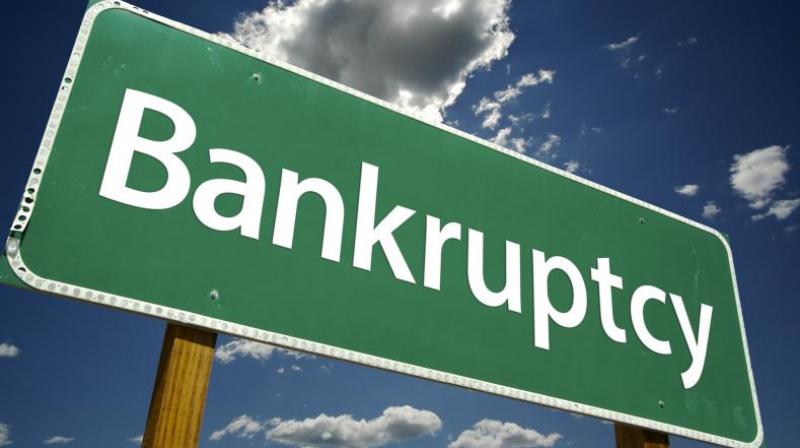Illnesses are the Number One route to bankruptcy!

Medical care is escalating and is unaffordable. In 2016 the World Bank pointed out, India was losing 6 percent of its GDP due to "premature deaths and preventable illnesses."
The industry is paid based on the quantity of care delivered. A doctor gets paid more if he performs more procedures or sees more patients, not if he keeps patients healthy.
One of the biggest and most important challenges you face is our failing health care system. Virtually every measure shows that we suffer poorer health and more chronic disease. We have a disease management and symptom relief system, not a health care system. We treat end-stage disease and not prevention of the true causes of disease.
Injury, life-threatening situations, developmental disabilities, overwhelming infection, organ failure-the list of successes is long. The model has failed for everyday health and chronic disease. Although Western medicine excels in the treatment of acute conditions such as heart attack and stroke, it does not empower people toward optimal health through prevention and the management or elimination of chronic disease.
Medicine has branched into 120 recognized specialties and subspecialties, spinning out several industries like pharma, biotechnology, medical devices and so on with billions of drugs prescribed and lab tests performed every year. Medicine is no longer within the domain of the doctors- it's a science with ever increasing complexity.
The increase in life expectancy and the aged population coupled with chronic diseases will increase the morbidity and health expenditure. Estimates show that high Out Of Pocket expenditure on healthcare plunges a sizeable section of the society, even the well-off to abys mal poverty levels. It pushes 100 million people below poverty line.
The biggest killer in India today is not the mosquito, not tobacco or tuberculosis. It is corruption. Many of the Pub lic hospitals are "monuments of disease. The mortality is a key indicator of the consequent health effects.The frequency of disease or death is on the rise!
What do you make of India's under-performing, poorly-funded, leaky public health system, smothered by high population and appalling sanitation and corruption?
The purpose of universal health care is to provide all citizens with an opportunity to obtain the health care that they may need without having to worry about financial hardship. A humane society must be able to provide basic health access to its citizens irrespective of their paying capacity.
Only 27% have health insurance in India. Health insurance is not without challenges in India. In our country, there is already a high level of medical malpractice. The unfettered continuation of such unethical practices bleeds health insurance schemes. The quick-fix approach to medicine fails badly because we are trying to fix a constantly evolving target - our body.
Each year 56,000 women in India die due to complications arising from pregnancy or childbirth. 1.7 million Children under the age of 5 die in India every year. Diarrhea - yes, loose bowel movements - alone kills 98,000 children under the age of 5 years. 456 million people in India need vision correction to help them see clearly.
India's disease pattern is shifting. One out of every ten persons aged 18 years and above has raised blood glucose - 9.0 % for both sexes. Every fourth individual aged 18 years has raised blood pressure, has increased by 10% from 2014 to 2017. Major metabolic risk factors are obesity, raised- blood pressure, blood glucose and blood cholesterol levels.
The health care system has never been as complex as it is today. Medical care is becoming unaffordable, even for patients who are covered by insurance. Patients are often are the victims of baseless denied coverage for diagnostic tests and medication. Patients now are forced to pay premiums for insurance plans that don't cover much of their medical needs.The middle class is being especially squeezed. Many patients simply don't have the money to pay more. Patients are self-rationing care. Many patients decide not to take certain medications because of the cost, despite the advice of their doctor. They are choosing which medications to take and which to stop. This can have lethal consequences.
Trust is lost. When patients are used for profits by insurance companies and hospitals they lose trust in the whole system. They stop trusting their doctors based on insurance company decisions and it does put a strain in the therapeutic relationship.
Insurance companies shouldn't make medical decisions. If a patient and the doctors decide on a treatment plan and then their insurance company does not authorize it because it is "not medically necessary" that is a medical decision, but it is over-turning a doctor's medical decision who actually examined the patient and has given the advice in the best interest of patient.
Insurance companies are not held accountable for these decisions. In fact, they are immune from accountability by the contracts they sign with patients. Hospitals are not patient-friendly. They are for-profit.
Doctors have no voice in how the system operates. Key lawmakers are much more interested in protecting their vested interests and the big health insurance and pharmaceutical companies. Patie nts are often trivialized.Poorer patients are more reluctant to trust government hospitals because of their poor infra-structure, corruption and negligence.
All people deserve the best medical care we can offer them. Insurance companies place obstacles in the way of doctors providing the best care to their patients. Medicine is about healing. We need to be the patients' biggest advocates. The time is here that all who provide medical services to patients - insurance companies, pharmaceutical companies, hospitals, etc. be bound to the same oath as doctors are!

